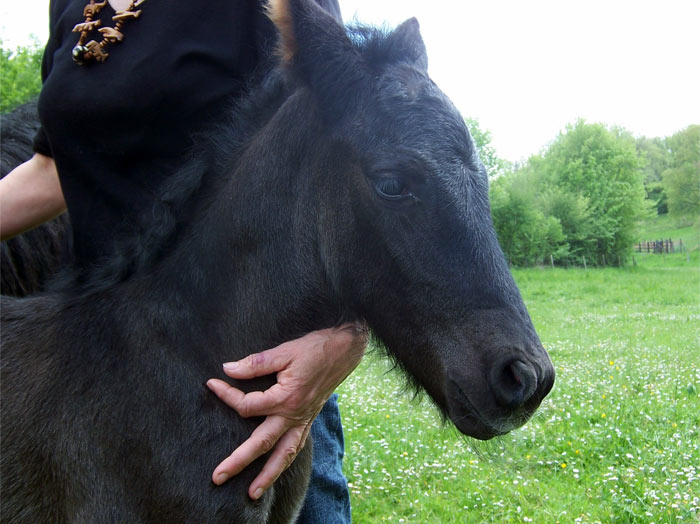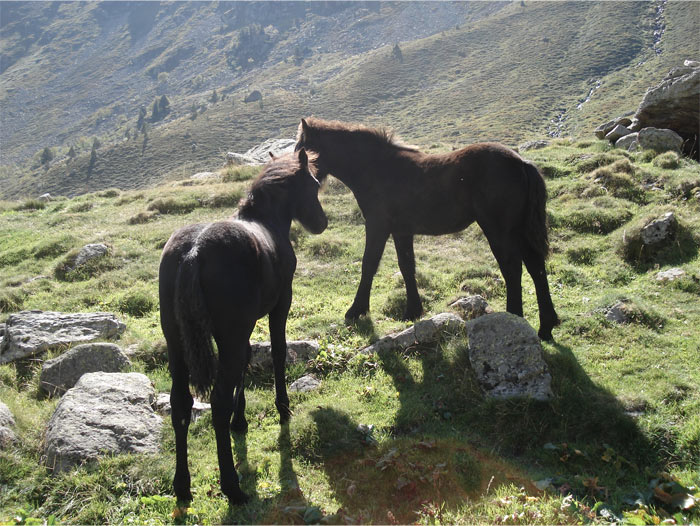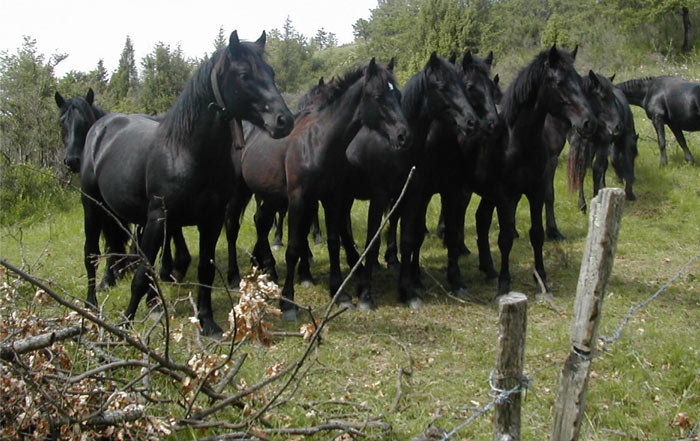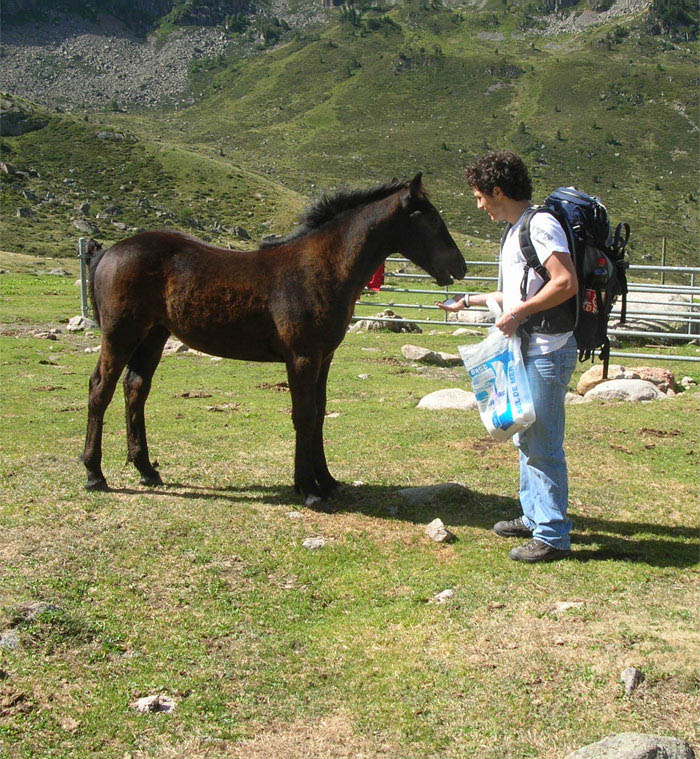Educating the young foal

A foal’s education must begin early. It should not simply spend its first three years in the fields. The education should be gradual and combine both the physical and the mental aspects. It should also include contact with other horses so that it can develop social skills with regard to the hierarchy of the group. Similarly, it should be given its chance to develop its relationships with people.
Thus, alternating time in the herd and time with people allows the foal to learn its relationship to others, both horses and humans, at an early stage when it is most receptive.

Jump on the foal from the day it is born and submerge it in human contact!! Nothing could be worse!!
Studies have shown that intense manipulation of the foal rarely has lasting effect and, indeed, can have undesirable results (Martine Hausberger, CNRS Rennes)
The foal is not a toy, it is a newly born animal, respect it!
It is not a miniature horse, it is becoming a horse, and the time spent with its mother lays the foundations of its behaviour.

With their departure to the mountains at the end of May, the foals lead the life of a real horse for 5 months and so develop their identity. Far from making them into wild animals, this stage makes them into exceptional individuals with strong and balanced personalities. The extreme conditions and their alliance to their social group make them into animals that have lived through real experiences and have mastered their emotions.
Comparing this with a foal that has stayed in the fields for 6 months, bears witness to the richness of experience gained by life in a herd and at altitude.
Weaning: this is a crucial period, with a lot human contact. Weaning the group minimizes the stress of separation from the mother and the change of food is monitored closely. Contact with people must always be relevant and effective. It continues throughout the whole year, alternating periods in the field with time in the stables.
Thus the foals come in each morning to be rewarded, fed, tied up, groomed, and to offer their feet to be handled. Then they go out in groups behind an adult as in a game (see chapter on breaking in gently). They are trimmed regularly especially before they are 1 year old to adjust their balance. They are wormed as often as necessary and return to the fields at one year old from where they come back for 3 weeks every 6 months until they are 2 to 3 years old.
These stages allow them to interact with people and to establish a relationship of confident respect. In this way we develop a partnership with the horses, which allows the process of breaking in to be achieved calmly.








